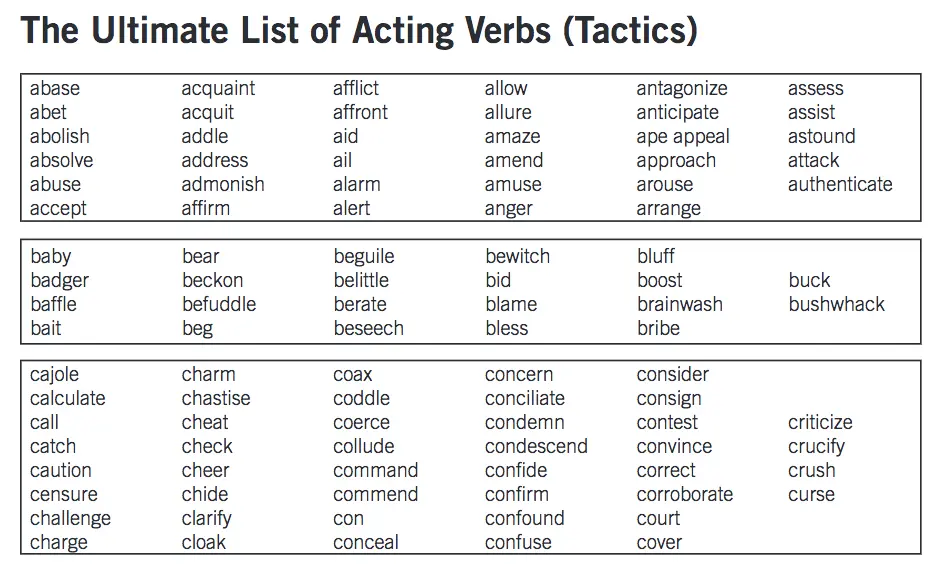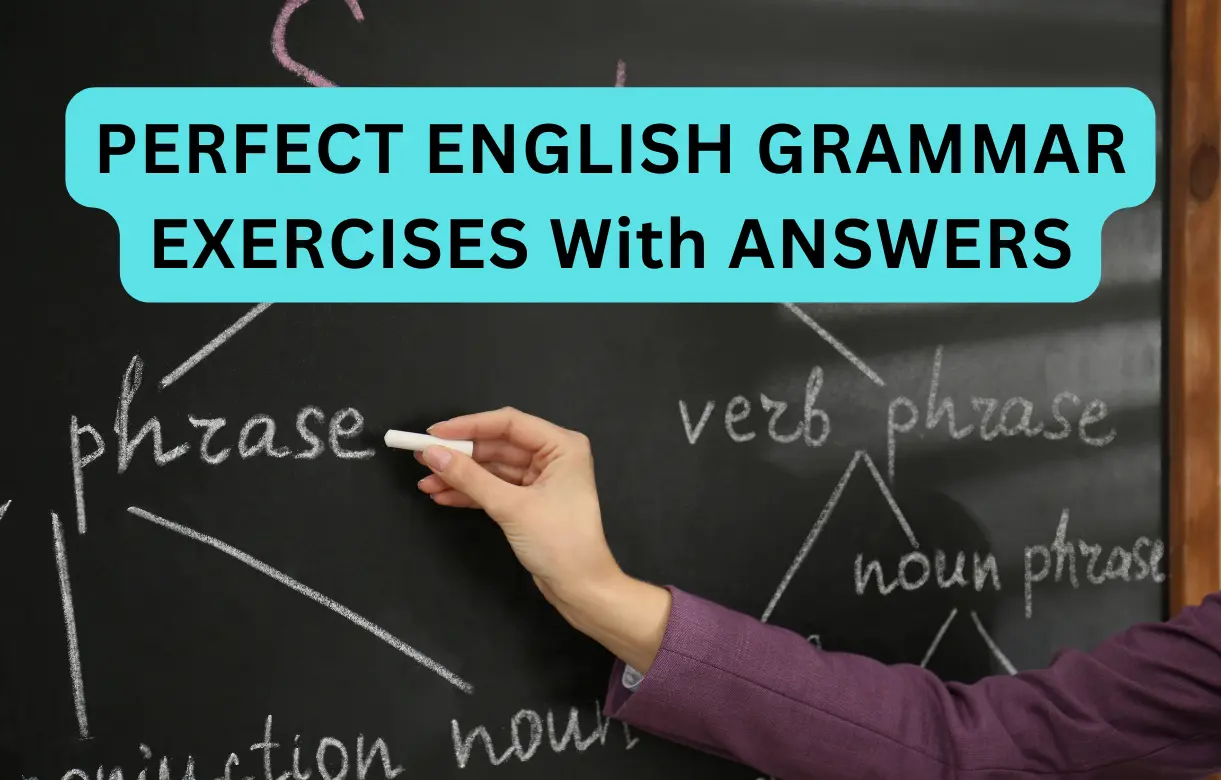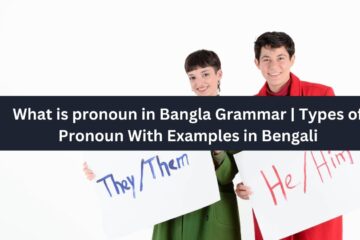Have you ever wondered what those small, seemingly insignificant words are that precede nouns in sentences? They’re called determiners, and they play a crucial role in grammar. Determiners are like the quiet conductors of the grammatical orchestra, guiding nouns and making the entire sentence come together harmoniously. In this comprehensive guide, we will unravel the mysteries of determiners, their types, and their functions, shedding light on their significance in the English language.
Defining Determiners
At its core, a determiner is a word that introduces a noun. These words are often short in stature, with the article “a” being the shortest in the English language. Don’t be fooled by their brevity; these words are of paramount importance in constructing meaningful sentences. In fact, “the” is the most commonly used English word, and “a” follows closely behind at number six in the rankings.
The Two Main Functions of Determiners
Determiners serve two primary grammatical functions:
1. Reference
Determiners help identify what a noun refers to in a sentence. They include articles, possessive determiners, and demonstratives. Let’s delve into some examples:
- The article “the”: It indicates that the noun refers to something known to both the speaker and the listener.
- For example: “Where did you park the car?”
- For example: “Where did you park the car?”
- Possessive determiners: These, such as “your” and “her,” show ownership or association.
- For example: “Where did you park your car?” or “Where did you park her car?”
- For example: “Where did you park your car?” or “Where did you park her car?”
- Demonstratives: “This” and “that” indicate the proximity of the noun.
- For example: “Are you driving this car or that car?”
- For example: “Are you driving this car or that car?”
2. Quantity
Determiners also specify the quantity of the noun in question. They include quantifiers, numbers, and distributives. Here are some examples:
- Numbers: “Ten students handed in their paper before the deadline.”
- Quantifiers: “Some students handed in their paper before the deadline.”
- Distributives: “Every student handed in their paper before the deadline.”
Understanding these functions helps us grasp the essence of determiners.
What is a Determiner: Specific vs. General Determiners
Determiners come in two categories: specific and general. Here’s a breakdown of both:
Being Specific
- Definite Article: “The” is known as the definite article, indicating a specific thing.
- Possessives: Words like “my,” “your,” “his,” “her,” and “their” show possession or association.
- Demonstratives: “This,” “that,” “these,” and “those” indicate proximity.
Things in General
- Indefinite Articles: “A” and “an” suggest something non-specific.
- Quantifiers: Phrases like “a few,” “a little,” “much,” and more, typically answer questions like “how many” or “how much.”
- Distributives: Words like “half,” “all,” “both,” and others refer to individual elements in a group.
What is a Determiner: Going Abstract
Determiners aren’t limited to tangible objects; they can also describe abstract concepts or ideas. For example:
- “I did it my way.”
- “Which idea was yours?”
- “Her research was overwhelming.”
What is a Determiner: Warm Up Words
Pre-determiners, such as “such,” “what,” and “quite,” are used to emphasize or express something as remarkable. These words often pair with indefinite articles.
- “I had such a good time.”
- “What an adventure!”
- “It was quite a party.”
What is a Determiner: Going Solo
Some nouns don’t require determiners and can stand alone. These are known as zero article nouns and include proper nouns, non-specific non-count nouns, and non-specific plural count nouns.
- “I go to camp in August.”
- “I try to drink water.”
- “She collects books.”
Now, you have a comprehensive understanding of determiners, their types, and their functions. These seemingly small words are crucial in constructing grammatically correct sentences. If you ever find yourself in doubt about your writing, don’t forget you can use a grammar checker like EasyBib Plus to ensure your work is error-free before submission. Additionally, EasyBib.com provides tools to help you correctly cite your sources in various citation styles, such as APA and MLA. Happy writing!
Here’s a list of 100 questions with four probable answers each, along with the correct answer marked. The list is presented for students:
- What is a determiner in grammar?
- A. A type of pronoun
- B. A word that introduces a noun
- C. An adverbial phrase
- D. A type of verb
- Answer: B
- Which is the shortest word in the English language?
- A. Elephant
- B. Determine
- C. A
- D. Grammar
- Answer: C
- What is the most commonly used English word?
- A. Determiner
- B. The
- C. Grammar
- D. Noun
- Answer: B
- How many functions do determiners have in grammar?
- A. One
- B. Two
- C. Three
- D. None
- Answer: B
- Which of the following is not a determiner?
- A. The
- B. My
- C. Running
- D. Their
- Answer: C
- What does the article “the” indicate in a sentence?
- A. Possession
- B. Specificity
- C. Plurality
- D. Verb tense
- Answer: B
- What does “your” indicate in the sentence “Where did you park your car?”
- A. Possession
- B. Color
- C. Size
- D. Verb tense
- Answer: A
- Which determiner indicates that the car belongs to someone female?
- A. Her
- B. My
- C. Its
- D. His
- Answer: A
- Which determiner usually indicates a closer item in proximity?
- A. This
- B. That
- C. These
- D. Those
- Answer: A
- What is the function of quantifiers in determiners?
- A. Showing possession
- B. Indicating proximity
- C. Specifying quantity
- D. Demonstrating color
- Answer: C
- Which determiner category includes “all” and “both”?
- A. Possessives
- B. Demonstratives
- C. Distributives
- D. Interrogatives
- Answer: C
- Which determiner refers to pairs within a bigger group?
- A. All
- B. Both
- C. Each
- D. Some
- Answer: B
- What do interrogatives in determiners help do?
- A. Show possession
- B. Ask questions
- C. Indicate quantity
- D. Display color
- Answer: B
- Which determiner indicates something non-specific?
- A. The
- B. My
- C. A
- D. These
- Answer: C
- When is “an” used instead of “a” as an indefinite article?
- A. Before nouns starting with a consonant sound
- B. Before nouns starting with a vowel sound
- C. Before nouns starting with a capital letter
- D. Before plural nouns
- Answer: B
- What do quantifiers typically indicate?
- A. Specificity
- B. Quantity
- C. Possession
- D. Verb tense
- Answer: B
- What do distributives refer to?
- A. Individual elements in a group
- B. Ownership
- C. Verb tense
- D. Plurality
- Answer: A
- What is the function of numbers in determiners?
- A. Showing color
- B. Indicating possession
- C. Specifying quantity
- D. Demonstrating size
- Answer: C
- Which determiner refers to something different or additional?
- A. The
- B. My
- C. Other
- D. This
- Answer: C
- Can determiners only refer to physical things?
- A. Yes
- B. No
- C. Sometimes
- D. It depends
- Answer: B
- What are pre-determiners used for?
- A. Indicating possession
- B. Expressing quantity
- C. Emphasizing or adding remarks
- D. Demonstrating color
- Answer: C
- What are zero article nouns?
- A. Nouns that don’t require a determiner
- B. Nouns with zero letters
- C. Nouns with multiple determiners
- D. Proper nouns
- Answer: A
- What are proper nouns in relation to determiners?
- A. A type of determiner
- B. Nouns that don’t need determiners
- C. Nouns with definite articles
- D. Nouns with possessive determiners
- Answer: B
- What are non-specific non-count nouns in relation to determiners?
- A. Nouns that always need a determiner
- B. Nouns that don’t exist
- C. Nouns that are always plural
- D. Nouns that can stand alone
- Answer: D
- What are non-specific plural count nouns in relation to determiners?
- A. Nouns that are always singular
- B. Nouns that can never stand alone
- C. Nouns that are never plural
- D. Nouns that can stand alone
- Answer: D
- Can you define what a determiner is in grammar?
- A. A type of pronoun
- B. A word that introduces a noun
- C. An adverbial phrase
- D. A type of verb
- Answer: B
- What is the primary function of determiners?
- A. To create confusion in sentences
- B. To emphasize adjectives
- C. To introduce nouns
- D. To replace verbs
- Answer: C
- How many determiners are there in the English language?
- A. Over 1,000
- B. Around 100
- C. Approximately 50
- D. Less than 10
- Answer: C
- Which determiner is known as the definite article?
- A. A
- B. An
- C. The
- D. This
- Answer: C
- Which determiner is used to indicate possession?
- A. The
- B. An
- C. My
- D. That
- Answer: C
- Which determiner is used to show proximity?
- A. These
- B. Those
- C. This
- D. That
- Answer: C
- Which determiner is used to ask questions?
- A. The
- B. What
- C. My
- D. This
- Answer: B
- What do possessive determiners indicate?
- A. Quantity
- B. Possession
- C. Proximity
- D. Specificity
- Answer: B
- Which determiner is used to indicate non-specificity?
- A. This
- B. The
- C. A
- D. My
- Answer: C
- What is the function of numbers in determiners?
- A. Demonstrating size
- B. Indicating quantity
- C. Specifying color
- D. Expressing emotion
- Answer: B
- Which determiner refers to individual elements in a group?
- A. All
- B. That
- C. Some
- D. Both
- Answer: D
- What do interrogatives in determiners help with?
- A. Demonstrating size
- B. Asking questions
- C. Expressing possession
- D. Indicating color
- Answer: B
- Which determiner indicates something non-specific?
- A. The
- B. That
- C. Other
- D. My
- Answer: C
- When is “an” used instead of “a” as an indefinite article?
- A. Before nouns starting with a consonant sound
- B. Before nouns starting with a vowel sound
- C. Before nouns starting with a capital letter
- D. Before plural nouns
- Answer: B
- What are distributives in determiners used for?
- A. Demonstrating size
- B. Showing possession
- C. Indicating emotion
- D. Referring to individual elements in a group
- Answer: D
- What are pre-determiners in determiners used for?
- A. Demonstrating color
- B. Asking questions
- C. Indicating possession
- D. Emphasizing or adding remarks
- Answer: D
- Can nouns stand alone without determiners?
- A. Always
- B. Never
- C. Sometimes
- D. It depends
- Answer: A
- What do zero article nouns refer to?
- A. Proper nouns
- B. Nouns that need multiple determiners
- C. Nouns that don’t need determiners
- D. Nouns with specific articles
Here are MORE questions related to determiners in grammar, along with four possible answers for each question. The correct answer is indicated with an asterisk (*).
- What is a determiner in grammar?
- a) A type of verb
- b) A noun
- c) An adjective
- d) A word that introduces a noun (Correct Answer)
- Which of the following is an example of a determiner?
- a) Dog
- b) The
- c) Run
- d) Happy (Correct Answer)
- What is the primary function of a determiner?
- a) To confuse the reader
- b) To introduce a verb
- c) To identify what a noun refers to
- d) To create run-on sentences
- Which word is the definite article?
- a) A
- b) An
- c) The (Correct Answer)
- d) And
- How does the definite article “the” differ from “a” and “an”?
- a) It indicates something specific (Correct Answer)
- b) It is shorter
- c) It’s used in questions only
- d) It’s a pronoun
- Which of the following is a possessive determiner?
- a) Car
- b) His (Correct Answer)
- c) Run
- d) Quickly
- What do quantifiers indicate?
- a) Color
- b) Quantity (Correct Answer)
- c) Shape
- d) Size
- How does “this” differ from “that” as a demonstrative?
- a) “This” indicates something further away.
- b) “This” indicates something closer (Correct Answer).
- c) They are interchangeable.
- d) “That” is not a demonstrative.
- What is the purpose of quantifiers in a sentence?
- a) To confuse the reader
- b) To indicate quantity (Correct Answer)
- c) To introduce nouns
- d) To replace verbs
- Which of the following is not a specific determiner?
- a) This
- b) My
- c) Any (Correct Answer)
- d) The
- What is the function of distributives in a sentence?
- a) To show possession
- b) To indicate quantity
- c) To distribute or divide (Correct Answer)
- d) To describe colors
- Which determiner refers to something different or additional?
- a) Every
- b) Neither
- c) Other (Correct Answer)
- d) Both
- What is the purpose of pre-determiners in a sentence?
- a) To express emphasis or remarkableness (Correct Answer)
- b) To introduce nouns
- c) To confuse the reader
- d) To create complex sentences
- When do you use “a” instead of “an” before a noun?
- a) When the noun starts with a consonant sound (Correct Answer)
- b) When the noun starts with a vowel sound
- c) When the noun is plural
- d) When the noun is a proper noun
- Which type of determiner can be used for both countable and uncountable nouns?
- a) Possessive determiners
- b) Demonstratives
- c) Quantifiers (Correct Answer)
- d) Distributives
- Which determiner is known as the definite article?
- a) An
- b) A
- c) The (Correct Answer)
- d) Some
- How do you differentiate between “this” and “these” as demonstratives?
- a) “This” is for singular, “these” is for plural (Correct Answer)
- b) “This” is for plural, “these” is for singular
- c) They are interchangeable.
- d) “These” is for animate objects, “this” is for inanimate objects.
- What is the primary role of indefinite articles?
- a) To indicate something specific
- b) To confuse the reader
- c) To suggest something non-specific (Correct Answer)
- d) To replace verbs
- Which of the following is a distributive determiner?
- a) A
- b) The
- c) Both (Correct Answer)
- d) Neither
- What is the function of the word “every” as a determiner?
- a) To indicate a single item
- b) To show possession
- c) To refer to individuals within a group (Correct Answer)
- d) To express emphasis
- What is a determiner in grammar?
- A. A type of pronoun
- B. A word that introduces a noun
- C. An adverbial phrase
- D. A type of verb
- Answer: B
- Which is the shortest word in the English language?
- A. Elephant
- B. Determine
- C. A
- D. Grammar
- Answer: C
- What is the most commonly used English word?
- A. Determiner
- B. The
- C. Grammar
- D. Noun
- Answer: B
- How many functions do determiners have in grammar?
- A. One
- B. Two
- C. Three
- D. None
- Answer: B
- Which of the following is not a determiner?
- A. The
- B. My
- C. Running
- D. Their
- Answer: C
- What does the article “the” indicate in a sentence?
- A. Possession
- B. Specificity
- C. Plurality
- D. Verb tense
- Answer: B
- What does “your” indicate in the sentence “Where did you park your car?”
- A. Possession
- B. Color
- C. Size
- D. Verb tense
- Answer: A
- Which determiner indicates that the car belongs to someone female?
- A. Her
- B. My
- C. Its
- D. His
- Answer: A
- Which determiner usually indicates a closer item in proximity?
- A. This
- B. That
- C. These
- D. Those
- Answer: A
- What is the function of quantifiers in determiners?
- A. Showing possession
- B. Indicating proximity
- C. Specifying quantity
- D. Demonstrating color
- Answer: C
- Which determiner category includes “all” and “both”?
- A. Possessives
- B. Demonstratives
- C. Distributives
- D. Interrogatives
- Answer: C
- Which determiner refers to pairs within a bigger group?
- A. All
- B. Both
- C. Each
- D. Some
- Answer: B
- What do interrogatives in determiners help do?
- A. Show possession
- B. Ask questions
- C. Indicate quantity
- D. Display color
- Answer: B
- Which determiner indicates something non-specific?
- A. The
- B. My
- C. A
- D. These
- Answer: C
- When is “an” used instead of “a” as an indefinite article?
- A. Before nouns starting with a consonant sound
- B. Before nouns starting with a vowel sound
- C. Before nouns starting with a capital letter
- D. Before plural nouns
- Answer: B
- What do quantifiers typically indicate?
- A. Specificity
- B. Quantity
- C. Possession
- D. Verb tense
- Answer: B
- What do distributives refer to?
- A. Individual elements in a group
- B. Ownership
- C. Verb tense
- D. Plurality
- Answer: A
- What is the function of numbers in determiners?
- A. Showing color
- B. Indicating possession
- C. Specifying quantity
- D. Demonstrating size
- Answer: C
- Which determiner refers to something different or additional?
- A. The
- B. My
- C. Other
- D. This
- Answer: C
- Can determiners only refer to physical things?
- A. Yes
- B. No
- C. Sometimes
- D. It depends
- Answer: B
- What are pre-determiners used for?
- A. Indicating possession
- B. Expressing quantity
- C. Emphasizing or adding remarks
- D. Demonstrating color
- Answer: C
- What are zero article nouns?
- A. Nouns that don’t require a determiner
- B. Nouns with zero letters
- C. Nouns with multiple determiners
- D. Proper nouns
- Answer: A



